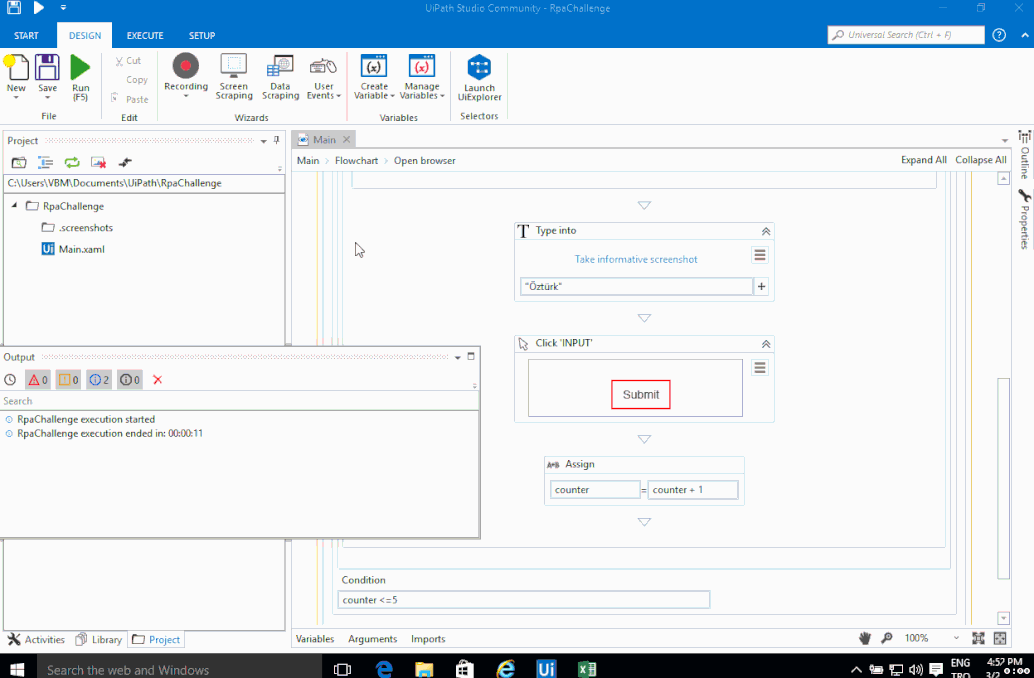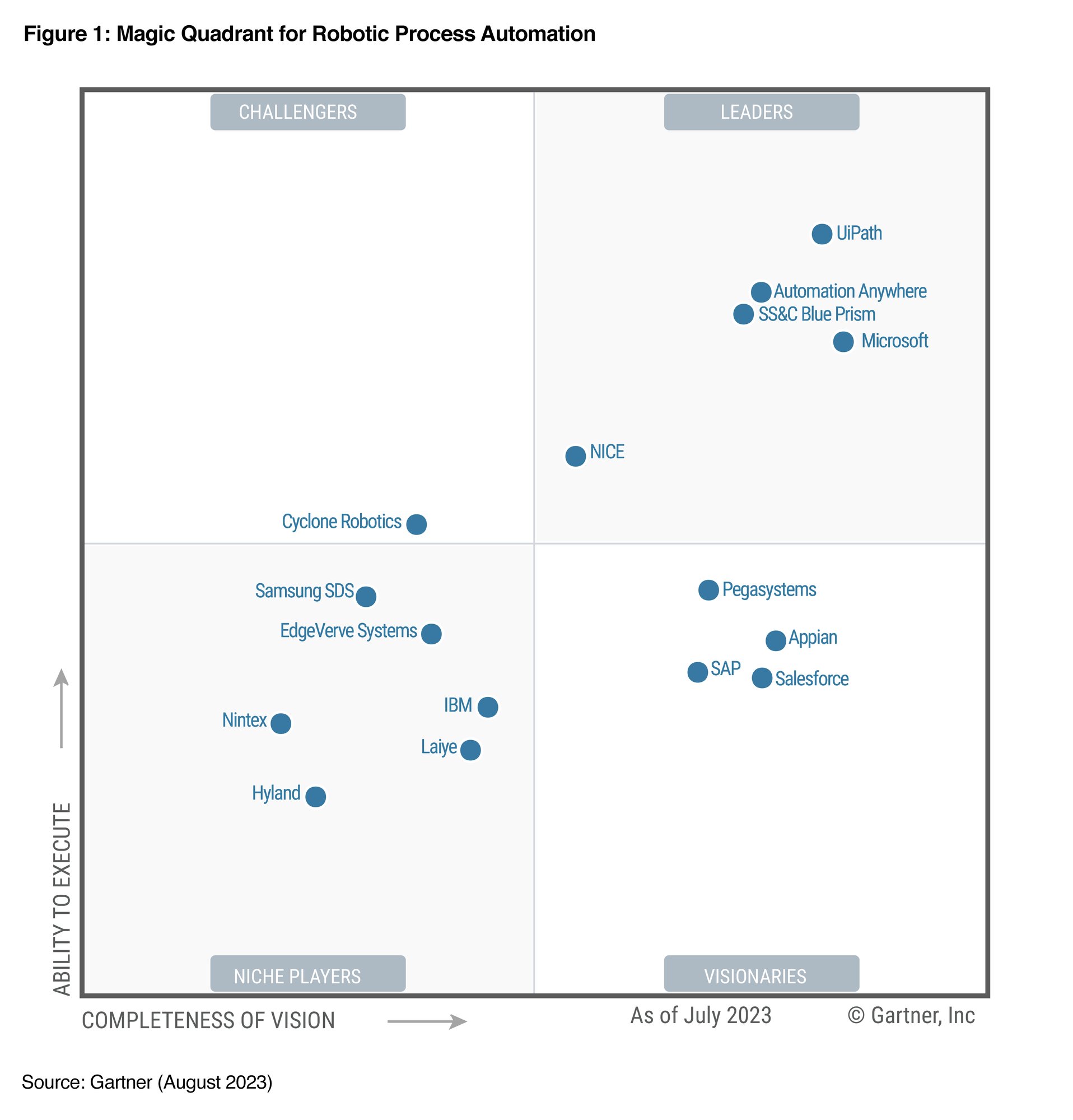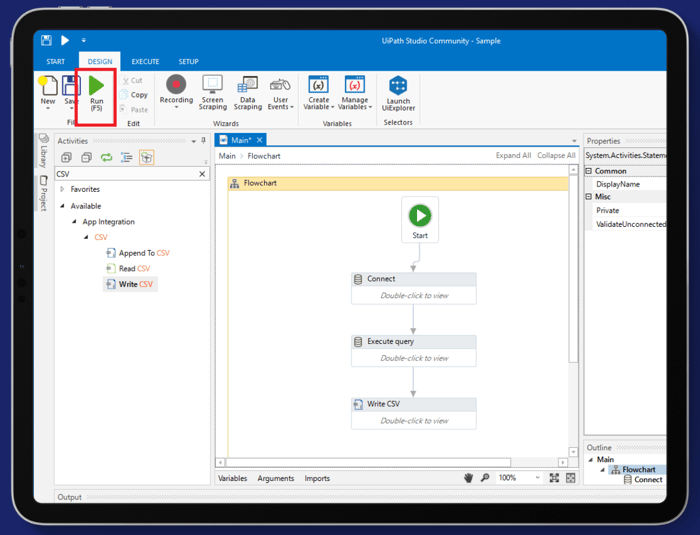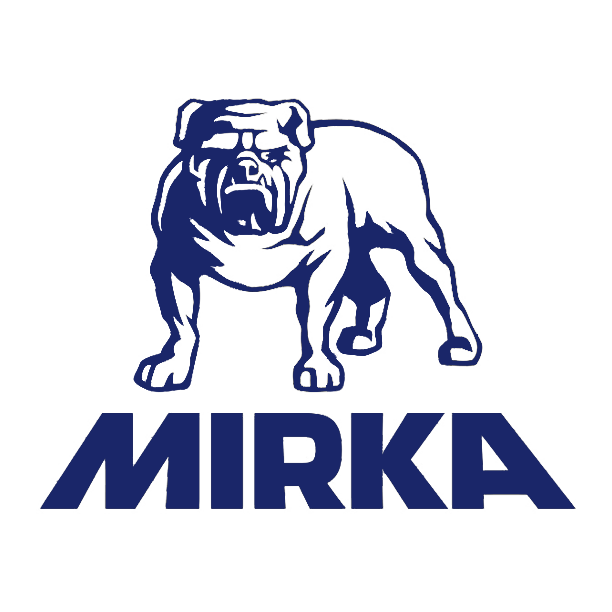Basics
What is RPA?
Robotic Process Automation (RPA) is a software technology that enables the easy creation, deployment, and management of software robots. These robots can mimic human interactions with digital systems and software. Similar to humans, software robots can understand what is displayed on a screen, execute the correct keystrokes, navigate systems, identify and extract data, and perform a variety of defined actions. However, software robots can do this faster and more consistently than humans, without the need to get up, stretch, or take a coffee break.
Benefits of Robotic Process Automation:
- Faster, significant Return on Investment (ROI)
- Minimal upfront investment
- Few APIs required (Screen Scraping)
- Low-code development environment
- Scalable and enterprise-ready
![]()
Further technologies to automate your processes
Automation Platform (iPaaS)
Artificial Intelligence
Process Mining
About Us
Demo: Introduction to RPA
We have packed the basics of Robotic Process Automation into 30 minutes:
What is RPA? How does it work? How do you get started?
Which use cases are suitable to start with?


Let the bot work for you
In Robotic Process Automation (RPA), different technologies are distinguished:
-
Unattended Bots: These robots work autonomously without human interaction. They are typically used for fully automated processes that run in the background, often at predetermined times or in response to specific triggers. For example, they could process invoices overnight or synchronize data when certain conditions are met.
-
Attended Bots: These robots work hand in hand with human users and are often controlled directly from the user's desktop. They are used for tasks where human input or decision-making is required. An example could be a bot guiding an employee through a complex data entry process, automatically filling in fields but asking the employee for verification or decision at certain steps.
- RPA and Artificial Intelligence (AI):
AI provides a cognitive enhancement for Robotic Process Automation (RPA). With RPA's ability to handle routine tasks and the cognitive capabilities of AI, you can optimize workflows, increase efficiency, and greatly boost productivity. With AI, RPA robots can mimic a wide range of decision-making and problem-solving tasks performed by humans, expanding the scope of work that can be automated.










